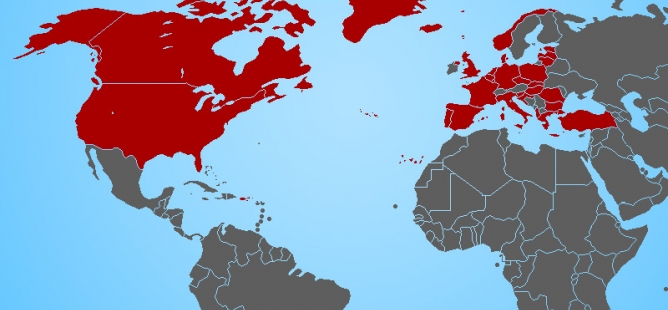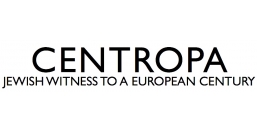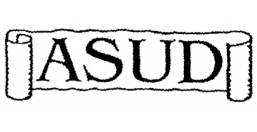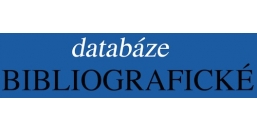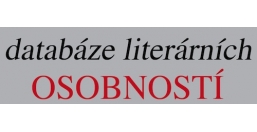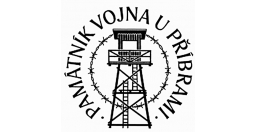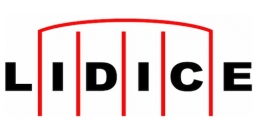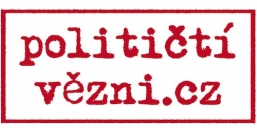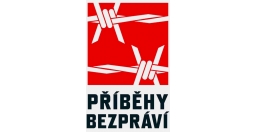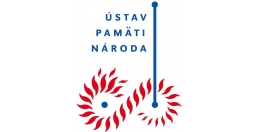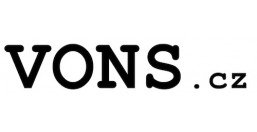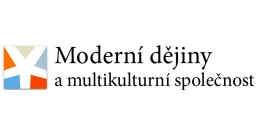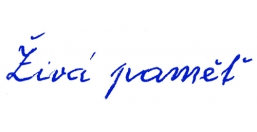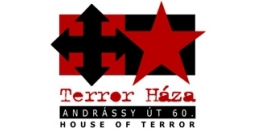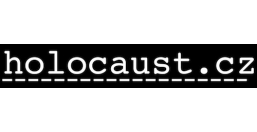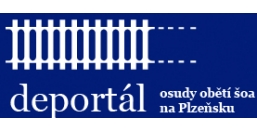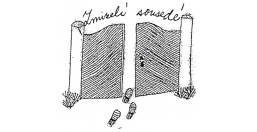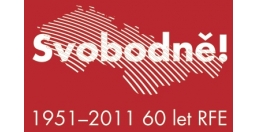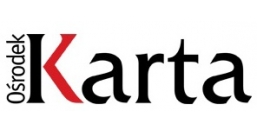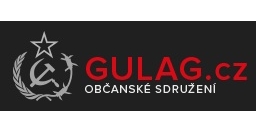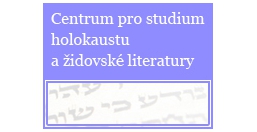
Severoatlantická smlouva (4. dubna 1949)
Český a anglický přepis Severoatlantické smlouvy na jehož základě byla vytvořena Organizace severoatlantické smlouvy. Podle preambule vznikla aliance proto, aby její členové mohli spojit své úsilí ke kolektivní obraně a k zachování míru a bezpečnosti. Listinu podepsali ministři zahraničních věcí dvanácti zemí obou břehů Atlantiku - USA, Kanady, Belgie, Dánska, Francie, Islandu, Itálie, Lucemburska, Nizozemska, Norska, Portugalska a Británie s úmyslem vytvořit prostor pro kolektivní obranu proti možné ozbrojené agresi SSSR.

Tento materiál vznikl v rámci projektu „Moderní dějiny do škol“, který je financován z prostředků ESF a státního rozpočtu ČR.
Washington, D.C., 4. dubna 1949
Smluvní strany této smlouvy znovu potvrzují svou víru v cíle a zásady Charty Spojených národů a svou touhu žít v míru se všemi národy a všemi vládami. Jsou odhodlány hájit svobodu, společné dědictví a kulturu svých národů, založenou na zásadách demokracie, svobody jednotlivce a právního řádu. Snaží se podporovat stabilitu a blahobyt národů v severoatlantické oblasti. Jsou rozhodnuty spojit své úsilí ke kolektivní obraně a k zachování míru a bezpečnosti.
Proto se dohodly na této Severoatlantické smlouvě:
Článek l
Smluvní strany se zavazují, jak je uvedeno v Chartě Spojených národů, urovnávat veškeré mezinárodní spory, v nichž mohou být zapleteni, mírovými prostředky tak, aby nebyl ohrožen mezinárodní mír, bezpečnost a spravedlnost, a zdržet se ve svých mezinárodních vztazích hrozby silou nebo použití síly jakýmkoli způsobem neslučitelným s cíli Spojených národů.
Článek 2
Smluvní strany budou přispívat k dalšímu rozvoji mírových a přátelských mezinárodních vztahů posilováním svých svobodných institucí, usilováním o lepší porozumění zásadám, na nichž jsou tyto instituce založeny, a vytvářením podmínek pro stabilitu a blahobyt. Budou usilovat o vyloučení konfliktu ze své mezinárodní hospodářské politiky a budou podporovat hospodářskou spolupráci mezi jakýmikoli smluvními stranami nebo mezi všemi smluvními stranami.
Článek 3
Aby bylo účinněji dosaženo cílů této smlouvy, budou smluvní strany, jednotlivě i společně, stálou a účinnou svépomocí a vzájemnou výpomocí udržovat a rozvíjet svou individuální i kolektivní schopnost odolat ozbrojenému útoku.
Článek 4
Smluvní strany budou společně konzultovat vždy, když podle názoru kterékoli z nich bude ohrožena územní celistvost, politická nezávislost nebo bezpečnost kterékoli smluvní strany.
Článek 5
Smluvní strany se dohodly, že ozbrojený útok proti jedné nebo více z nich v Evropě nebo Severní Americe bude považován za útok proti všem, a proto odsouhlasily, že dojde-li k takovému ozbrojenému útoku, každá z nich uplatní právo na individuální nebo kolektivní obranu, uznané článkem 51 Charty Spojených národů, pomůže smluvní straně nebo stranám takto napadeným tím, že neprodleně podnikne sama a v souladu s ostatními stranami takovou akci, jakou bude považovat za nutnou, včetně použití ozbrojené síly, s cílem obnovit a udržet bezpečnost severoatlantické oblasti. Každý takový útok a všechna opatření učiněná v jeho důsledku budou neprodleně oznámena Radě bezpečnosti. Tato opatření budou ukončena, jakmile Rada bezpečnosti přijme opatření nutná pro obnovení a zachování mezinárodního míru a bezpečnosti.
Článek 6(1)
Pro účely článku 5 se za ozbrojený útok na jednu nebo více smluvních stran pokládá ozbrojený útok:
- na území kteréholi smluvní strany v Evropě nebo Severní Americe, na alžírské departementy Francie,(2) na území Turecka nebo na ostrovy pod jurisdikcí kterékoli smluvní strany v severoatlantické oblasti severně od obratníku Raka;
- na ozbrojené síly, lodě či letadla kterékoli ze smluvních stran, jež se nacházejí na nebo nad jejich územím nebo na jakoukoli oblast v Evropě, kde byla rozmístěna vojska jakékoli smluvní strany po datu, kdy Severoatlantická smlouva vstoupila v platnost.
Článek 7
Tato smlouva se nedotýká a nebude žádným způsobem vykládána, jako by se dotýkala práv a povinností smluvních stran, které jsou členy Spojených národů, vyplývajících z Charty, ani základní odpovědnosti Rady bezpečnosti za zachování mezinárodního míru a bezpečnosti.
Článek 8
Každá ze smluvních stran prohlašuje, že žádné její současně platné mezinárodní závazky vůči kterékoli jiné smluvní straně nebo kterémukoli třetímu státu nejsou v rozporu s ustanovením této smlouvy, a zavazuje se, že nepřijme žádný mezinárodní závazek, který by byl s touto smlouvou v rozporu.
Článek 9
Smluvní strany tímto zřizují Radu, ve které bude každá z nich zastoupena, aby projednala záležitosti týkající se plnění této smlouvy. Rada bude organizována tak, aby byla schopna se kdykoli pohotově sejít. Rada zřídí takové pomocné orgány, jaké mohou být potřebné; zejména ihned zřídí Výbor pro obranu, který bude doporučovat opatření nutná k plnění článků 3 a 5.
Článek 10
Smluvní strany mohou na základě jednomyslného souhlasu vyzvat kterýkoli jiný evropský stát, který je schopen napomáhat rozvoji zásad této smlouvy a přispět k bezpečnosti severoatlantické oblasti, aby přistoupil k této smlouvě. Každý takto vyzvaný stát se může stát smluvní stranou tím, že uloží u vlády Spojených států amerických svou listinu o přistoupení. Vláda Spojených států amerických bude informovat každou ze smluvních stran o uložení každé takové listiny o přistoupení.
Článek 11
Tato smlouva bude ratifikována a její ustanovení budou smluvními stranami plněna v souhlasu s jejich ústavními postupy. Ratifikační listiny budou uloženy co nejdříve vládou Spojených států amerických, která uvědomí všechny ostatní signatáře o každém uložení. Smlouva vstoupí v platnost mezi státy, které ji ratifikovaly, jakmile budou uloženy ra-tifikační listiny většiny signatářů, včetně ratifikačních listin Belgie, Francie, Kanady, Lucemburska, Nizozemska, Spojeného království a Spojených států, a pro další státy smlouva nabude účinnosti dnem uložení jejich ratifikačních listin.(3)
Článek 12
Poté, co bude smlouva v platnosti deset let nebo kdykoli později, se smluvní strany, jestliže o to některá z nich požádá, poradí o revizi smlouvy, přičemž vezmou v úvahu faktory ovlivňující mír a bezpečnost v severoatlantické oblasti včetně vývoje všeobecných i regionálních smluv, uzavřených podle Charty Spojených národů pro zachování mezinárodního míru a bezpečnosti.
Článek 13
Po dvaceti letech platnosti smlouvy může kterákoli smluvní strana odstoupit od této smlouvy rok poté, co podá vládě Spojených států ame- rických zprávu o vypovězení smlouvy a ta podá informaci vládám dalších smluvních stran o uložení každé výpovědi.
Článek 14
Tato smlouva, jejíž anglická a francouzská verze jsou totožné, bude uložena v archivu vlády Spojených států amerických. Řádně ověřené kopie budou touto vládou předány vládám ostatních signatářských zemí.
1. Po doplnění článkem 2 Protokolu k Severoatlantické smlouvě po přistoupení Řecka a Turecka.
2. 16. ledna 1963 vzala Rada na vědomí, že pokud jde o bývalé alžírské departementy Francie, staly se příslušné klauzule této smlouvy od 3. července 1962 nepoužitelnými.
3. Smlouva vešla v platnost 24. srpna 1949, po uložení ratifikačních listin všech signatářských států.
TEXT V ANGLIČTINĚ:
The North Atlantic Treaty
Washington D.C. - 4 April 1949
The Parties to this Treaty reaffirm their faith in the purposes and principles of the Charter of the United Nations and their desire to live in peace with all peoples and all governments.
They are determined to safeguard the freedom, common heritage and civilisation of their peoples, founded on the principles of democracy, individual liberty and the rule of law. They seek to promote stability and well-being in the North Atlantic area.
They are resolved to unite their efforts for collective defence and for the preservation of peace and security. They therefore agree to this North Atlantic Treaty :
Article 1
The Parties undertake, as set forth in the Charter of the United Nations, to settle any international dispute in which they may be involved by peaceful means in such a manner that international peace and security and justice are not endangered, and to refrain in their international relations from the threat or use of force in any manner inconsistent with the purposes of the United Nations.
Article 2
The Parties will contribute toward the further development of peaceful and friendly international relations by strengthening their free institutions, by bringing about a better understanding of the principles upon which these institutions are founded, and by promoting conditions of stability and well-being. They will seek to eliminate conflict in their international economic policies and will encourage economic collaboration between any or all of them.
Article 3
In order more effectively to achieve the objectives of this Treaty, the Parties, separately and jointly, by means of continuous and effective self-help and mutual aid, will maintain and develop their individual and collective capacity to resist armed attack.
Article 4
The Parties will consult together whenever, in the opinion of any of them, the territorial integrity, political independence or security of any of the Parties is threatened.
Article 5
The Parties agree that an armed attack against one or more of them in Europe or North America shall be considered an attack against them all and consequently they agree that, if such an armed attack occurs, each of them, in exercise of the right of individual or collective self-defence recognised by Article 51 of the Charter of the United Nations, will assist the Party or Parties so attacked by taking forthwith, individually and in concert with the other Parties, such action as it deems necessary, including the use of armed force, to restore and maintain the security of the North Atlantic area.
Any such armed attack and all measures taken as a result thereof shall immediately be reported to the Security Council. Such measures shall be terminated when the Security Council has taken the measures necessary to restore and maintain international peace and security .
Article 6
For the purpose of Article 5, an armed attack on one or more of the Parties is deemed to include an armed attack:
- on the territory of any of the Parties in Europe or North America, on the Algerian Departments of France, on the territory of or on the Islands under the jurisdiction of any of the Parties in the North Atlantic area north of the Tropic of Cancer;- on the forces, vessels, or aircraft of any of the Parties, when in or over these territories or any other area in Europe in which occupation forces of any of the Parties were stationed on the date when the Treaty entered into force or the Mediterranean Sea or the North Atlantic area north of the Tropic of Cancer.
Article 7
This Treaty does not affect, and shall not be interpreted as affecting in any way the rights and obligations under the Charter of the Parties which are members of the United Nations, or the primary responsibility of the Security Council for the maintenance of international peace and security.
Article 8
Each Party declares that none of the international engagements now in force between it and any other of the Parties or any third State is in conflict with the provisions of this Treaty, and undertakes not to enter into any international engagement in conflict with this Treaty.
Article 9
The Parties hereby establish a Council, on which each of them shall be represented, to consider matters concerning the implementation of this Treaty. The Council shall be so organised as to be able to meet promptly at any time. The Council shall set up such subsidiary bodies as may be necessary; in particular it shall establish immediately a defence committee which shall recommend measures for the implementation of Articles 3 and 5.
Article 10
The Parties may, by unanimous agreement, invite any other European State in a position to further the principles of this Treaty and to contribute to the security of the North Atlantic area to accede to this Treaty. Any State so invited may become a Party to the Treaty by depositing its instrument of accession with the Government of the United States of America. The Government of the United States of America will inform each of the Parties of the deposit of each such instrument of accession.
Article 11
This Treaty shall be ratified and its provisions carried out by the Parties in accordance with their respective constitutional processes. The instruments of ratification shall be deposited as soon as possible with the Government of the United States of America, which will notify all the other signatories of each deposit. The Treaty shall enter into force between the States which have ratified it as soon as the ratifications of the majority of the signatories, including the ratifications of Belgium, Canada, France, Luxembourg, the Netherlands, the United Kingdom and the United States, have been deposited and shall come into effect with respect to other States on the date of the deposit of their ratifications.
Article 12
After the Treaty has been in force for ten years, or at any time thereafter, the Parties shall, if any of them so requests, consult together for the purpose of reviewing the Treaty, having regard for the factors then affecting peace and security in the North Atlantic area, including the development of universal as well as regional arrangements under the Charter of the United Nations for the maintenance of international peace and security.
Article 13
After the Treaty has been in force for twenty years, any Party may cease to be a Party one year after its notice of denunciation has been given to the Government of the United States of America, which will inform the Governments of the other Parties of the deposit of each notice of denunciation.
Article 14
This Treaty, of which the English and French texts are equally authentic, shall be deposited in the archives of the Government of the United States of America. Duly certified copies will be transmitted by that Government to the Governments of other signatories.
ZDROJ: http://www.nato.int/docu/basictxt/treaty.htm
Přílohy
Související články
- Rok po roce - 1945-1949 ve světě - pracovní list (31.3.2014)
- Rok po roce: 1945-49 ve světě - prezentace (14.1.2014)
- Rok po roce - 1945–1949 - text (14.1.2014)
- Rozdělený svět let 1945-1955 v normalizační učebnici dějepisu (1983) (25.12.2013)
- Poválečný svět v letech 1945 - 1949 v normalizační učebnici dějepisu (26.11.2013)
- Železná opona jako téma ve výuce (1.10.2013)
- Protiamerické karikatury Dikobrazu (15.9.2013)
- Počátky studené války (1945-1950) (1.9.2013)
- Fakta a argumenty (27.7.2013)
- Tzv. Varšavská smlouva (14. 5. 1955) (2.6.2013)
- Začátky studené války. Formování bipolárního uspořádání mezinárodních vztahů v letech 1945–1947. (21.10.2011)
- ŽELEZNÁ OPONA - pracovní list k cyklu Abeceda komunistických zločinů (6.10.2011)
- Studená válka v éteru – Rádio svobodná Evropa versus Rádio Moskva (1.5.2011)
- Stanovisko SSSR k přípravám Marshallova plánu (2.7. 1947) (1.4.2011)
- Jaderné zbrojení a odzbrojování (6.2.2011)
- Evropská integrace (1951-2011) (4.2.2011)
- Evropská unie - struktura a fungování (31.5.2010)
- Dějiny evropské integrace v datech a událostech (15.5.2010)
- Webová prezentace NATO - odtajněno (26.3.2010)
- Berlínská krize (1948-1949) (2.12.2009)
- Berlínská krize (1948-1949) - pracovní listy (2.12.2009)
- Projekt Českého rozhlasu: Utajená obrana železné opony (28.11.2009)
- Berlínská zeď - symbol rozdělené Evropy (5.9.2009)








